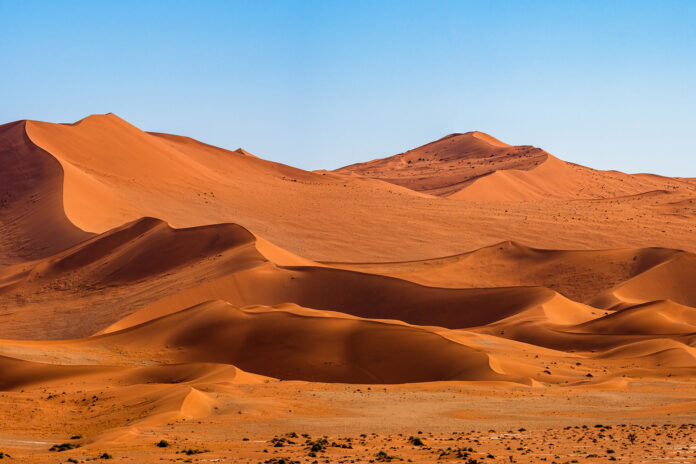The Sahara, one of the world’s most famous deserts, could change significantly by 2050 as climate change continues. These changes will not only affect the landscape itself, but will also have far-reaching effects on neighboring countries. From the ecological to the socio-economic level, climate change will shape life in the Sahara and beyond.
The impact of climate change on the Sahara The Sahara, known for its vast sand dunes and extreme aridity, is expected to continue to dry out and expand. Studies show that the average temperature in the region is increasing, while precipitation is decreasing. This combination of rising temperatures and lower rainfall will lead to the Sahara spreading further towards neighboring regions. Researchers predict that vegetation in the Sahara will decline as plants increasingly suffer from a lack of water. This will lead to increased desertification and exacerbate the already dry conditions in the region. The shift in ecosystems will also have an impact on wildlife, as many species may find it difficult to adapt to the changing living conditions. Impact on neighboring countries The changes in the Sahara will not remain isolated, but will also have an impact on neighboring countries.
Here are some potential impacts: 1. water scarcity and resource conflicts: The reduced rainfall in the Sahara will further reduce the availability of water resources in the region. This could lead to conflicts between countries competing for limited water sources. Water scarcity and water conflicts are already a problem in some parts of the Sahara, and climate change is likely to exacerbate these problems. 2. increased pressure on agricultural land: Increasing desertification will further reduce the amount of arable land in the Sahara. This will affect food production in the region and possibly lead to food shortages and increased dependence on imports. For many countries near the Sahara that are already facing challenges in agriculture, this could cause serious economic problems. 3. migration and social instability: The deterioration of living conditions in the Sahara could lead to increased migration as people are forced to migrate in search of better livelihood opportunities.
This could lead to social instability in the affected countries and exacerbate existing tensions. 4. loss of biodiversity: The changes in the Sahara will also have an impact on biodiversity in the region. Many plant and animal species that are adapted to the specific conditions of the Sahara could be threatened by the changing habitats. This could lead to a loss of biodiversity and have long-term ecological consequences. The changes in the Sahara by 2050 due to climate change will have far-reaching effects on the region and beyond. From the deterioration of ecological conditions to socio-economic challenges, the countries near the Sahara will face major challenges. Comprehensive and coordinated international cooperation will be required to effectively address these challenges and minimize the impact of climate change in the region. Sources: 1. “Sahara Desertification.” NASA Earth Observatory.[https://earthobservatory.nasa.gov/images/144967/sahara-desertification] 2. Cook, Benjamin I., et al. “Sahara Desert Is Growing.” The University of Arizona.[https://uanews.arizona.edu/story/sahara-desert-growing] 3. Kelley, Colin P., et al. “Aridity, climate change, and the risks of desertification.” Science.[https://science.sciencemag.org/content/316/5829/847.abstract]



